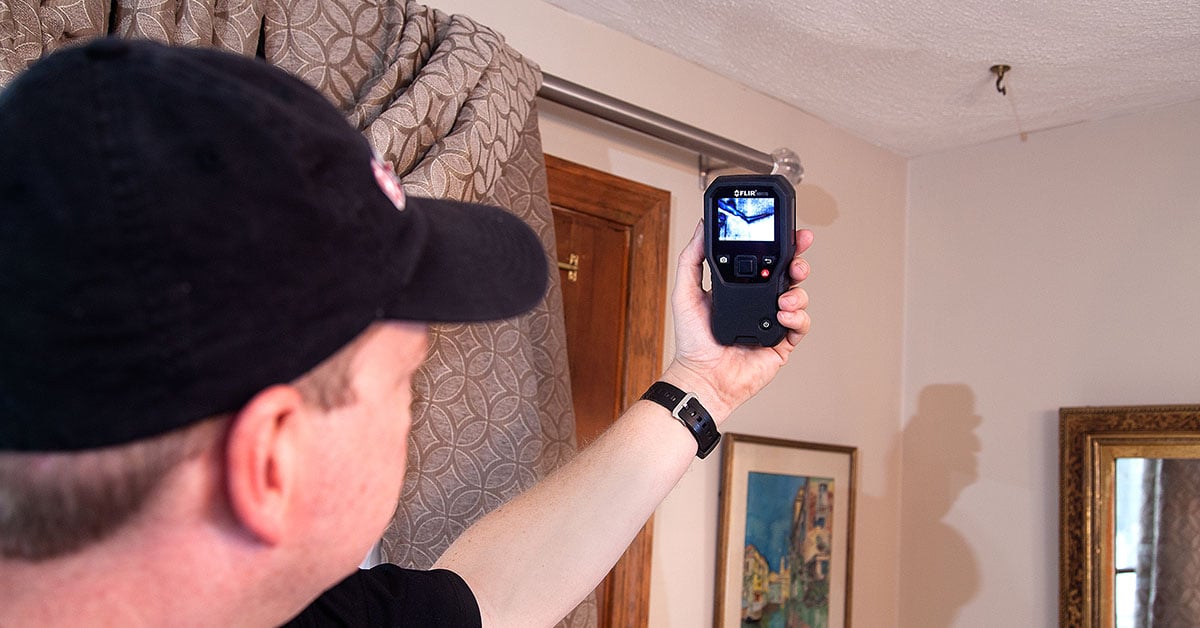Just how to Locate as well as Repair Work Water Leaks-- A Comprehensive Guide
Just how to Locate as well as Repair Work Water Leaks-- A Comprehensive Guide
Blog Article
How do you feel in regards to Leaking water lines?

Early detection of leaking water lines can reduce a potential calamity. Aside from conserving you money, it will certainly lessen the stress and frustration. The moment you discover a leakage, calling your plumber for repairs is the most effective service. Some tiny water leaks might not be noticeable. If you can not spot it with your naked eyes, below are some hacks that assist.
1. Check Out the Water Meter
Checking it is a surefire way that helps you discover leakages. If it relocates, that indicates a fast-moving leakage. This indicates you might have a sluggish leak that might even be underground.
2. Check Water Usage
If you detect abrupt changes, in spite of your usage being the exact same, it indicates that you have leaks in your plumbing system. An unexpected spike in your costs shows a fast-moving leak.
A consistent rise every month, even with the very same practices, reveals you have a slow leakage that's also gradually rising. Call a plumber to thoroughly inspect your residential or commercial property, particularly if you feel a cozy location on your flooring with piping below.
3. Do a Food Coloring Test
When it comes to water usage, 30% comes from toilets. If the color in some way infiltrates your bowl throughout that time without flushing, there's a leakage between the container and bowl.
4. Asses Outside Lines
Don't fail to remember to inspect your outside water lines as well. Must water leak out of the link, you have a loosened rubber gasket. One little leakage can squander loads of water as well as increase your water costs.
5. Examine and also Evaluate the Scenario
Home owners need to make it a practice to inspect under the sink counters and also also inside cabinets for any type of bad odor or mold and mildew growth. These two warnings show a leakage so punctual attention is required. Doing routine assessments, also bi-annually, can save you from a major problem.
Much more significantly, if you understand your house is already old, keep a watchful eye on your heaters, hose pipes, pipes etc. Check for stainings and also damaging as a lot of appliances and also pipelines have a life span. They will certainly likewise naturally weaken due to damage. If you suspect dripping water lines in your plumbing system, do not wait on it to rise. Call a specialist plumber right now so you don't wind up with a terrible mess in your home.
Early discovery of dripping water lines can reduce a prospective catastrophe. Some tiny water leakages might not be visible. Inspecting it is a guaranteed method that aids you find leaks. One small leakage can throw away lots of water and also surge your water expense.
If you believe dripping water lines in your plumbing system, don't wait for it to escalate.
How to Know If Your Home Has a Hidden Leak
Water Meter Reveals Inexplicable Water Usage
If you’d like to test whether or not there’s a leak somewhere in your home, you can do this using your water meter. Here is how to conduct the test:
Don’t use any water in your home for at least 30 minutes; this also means not turning on faucets or water-using appliances.
Go outside, and check your water meter for activity.
If your water meter shows that there was activity, even though no one was using any water, this proves that there is a leak in your home.Visible Mold or Mildew Growth
Leaks behind walls create moist, dark environments that allow mold and mildew to grow and thrive. Eventually, you might see mold growth forming on the wall closest to a hidden leak.
If mold is growing in an area that receives a high amount of moisture, such as a bathroom, it may simply be an indication that better ventilation is needed. However, if you see mold growth on a wall or the ceiling in an area where you would not expect, you probably have a hidden leak.
Musty, Mildew Odor
Sometimes you might not be able to see the mold or mildew that is growing as a result of a leak. However, the smell can give the problem away just as easily. If you catch a whiff of something musty, there’s a good chance that old water is collecting somewhere in your home that you can’t see.
Stained/Warped Walls, Ceilings, or Floors
When your home soaks up water, a variety of red flags can become visible, including ceiling stains, bubbling drywall, warped walls, and sagging floors. While these issues can be caused by excess humidity, they can also be signs that a pipe or plumbing connection has started leaking behind your walls.
Inexplicably High Water Bill
After a while, you get a general sense for what your water bill should be. If you own a pool or sprinkler system, your bill will tend to be higher during summer. However, if you receive a water bill that seems especially high, and you can’t figure out what caused it, then you may have a hidden leak somewhere that’s increasing your bill.
https://www.plumbingjoint.com/blog/2019/july/how-to-know-if-your-home-has-a-hidden-leak/

I am just very fascinated with Finding hidden leaks and I really hope you enjoyed the blog entry. Do you know about another individual who is curious about Finding hidden leaks? Be sure share it. We appreciate reading our article about Locating water leaks.
Report this page